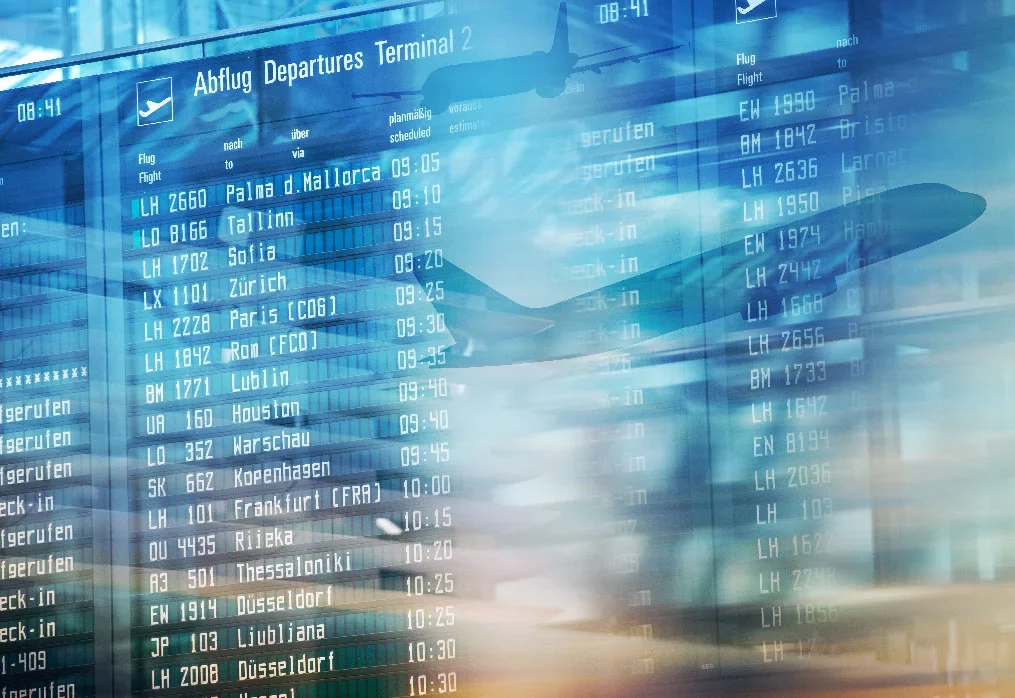The challenge of process automation that the travel and leisure industry face

By Juan Ignacio Fransoy, Global Business Developer of Conciliac
The post-pandemic recovery of the travel and leisure industry is generating a wealth of information that companies in the segment need to process quickly and effectively. Data reconciliation thus becomes one of the most friction-ridden processes that can be easily solved through automation. Read on to learn more!
Table of Contents:
- The recovery of the travel and tourism sector
- What travel agencies need to know about process automation
Talking about the recovery of companies in any industry in the post pandemic world becomes too broad a topic.
In relation to travel, tourism and hospitality companies, which have had Conciliac EDM since before the lockdown of their operations, it takes me back to a day to day life that went through different moments: before, during and after the pandemic.
While this blog has provided recommendations for automating the processing of reconciliations for travel agencies before the pandemic began, what came after the pandemic confronted this sector with a new challenge, possibly more dizzying because of the speed with which companies in this industry had to make the right decisions to sustain themselves.
To address this issue, I will share with you an analysis to date that raises, in this first part, the challenge of automation in the recovery period; in a second part, I will share, point by point, the benefits of automating data processing.
Make yourselves comfortable, this journey will be turbulent, but it will be for the sole purpose of making you aware that today we have a lot of technology to lead this industry towards a path of great growth, hand in hand with proper data management.
The recovery of the travel and tourism sector
If the pandemic had a negative impact on companies living in the travel, tourism and hospitality sector with the lockdown of their operations, the post-pandemic recovery of this industry brings with it another type of impact that, while highly opportune, also represents a great challenge.
The fact is that these companies are back in business and rapidly perceiving a growth in demand that, according to the World Travel & Tourism Council (WTTC), could reach a full recovery on a global scale by the year 2024.
According to a statement issued by the International Air Transport Association (IATA), global traffic, corresponding to the number of passengers carried per kilometer (RPK) rose 67% year-on-year to January 2023, and 84.2% compared to the same month in 2019.
Meanwhile, domestic traffic also grew (32.7%) placing RPKs in this vertical at 97.4% compared to 2019, while international traffic reached 104% year-on-year in January this year, representing 77% RPKs, compared to 2019.
For Willie Walsh, director general of the International Air Transport Association (IATA): “Air travel demand is off to a very healthy start in 2023,” further highlighting that the current economic and geopolitical uncertainty has not dampened the upward trend.
This context is undoubtedly very beneficial at a commercial level but also very challenging at an operational level, as the information to be managed is reproduced, while the industry seeks to achieve full recovery.
Are companies in this sector prepared to manage a high volume of data that is constantly increasing from different sources? How are they doing it now and what other options do they have with the automation of processes?
What travel agencies need to know about process automation
As we anticipated in a previous blog post where we talked about the secret of survival of travel agencies, they have the great challenge of knowing which IT platforms they can count on to operate in the most effective way.
Certainly, agencies are looking for technology providers that offer effectiveness, speed and flexibility, so booking engines, ERP systems and powerful software to automate routine processes become the ideal combo to be more competitive in the market.
On this occasion, we are going to focus on one of the most requested services on this road to full recovery: data reconciliation.
We often refer to reconciliations as the accounting term that defines the comparison of two or more sets of financial data. However, thanks to the advancement of predictive and exponential technologies, such as machine learning and artificial intelligence, it is now possible to reconcile other types of data.
This is, in particular, what allows a travel and tourism agency to fine-tune its operation by automating all the reconciliations it requires in order to optimize decision making based on more accurate reports.
Let’s see it in an illustrative example:
A travel and tourism agency that sold X amount of tour packages needs to confirm the amount of air tickets issued on a certain date. The most rudimentary way to do this is by means of an Excel spreadsheet where the data shared by IATA was previously uploaded based on the BSP system that sends a report, precisely, with which it confirms the number of tickets issued, the dates and the amounts.
This load is usually left in the hands of a person who has more tasks to perform during his working day, and who sets aside a period of time to carry out this mission manually, being very prone to make unintentional errors.
As can be seen in this example, and although it can be seen that the reconciliation has financial and statistical purposes, it is not only a strictly accounting action. We can say, then, that we borrow the concept to apply it to the world of data-driven companies.
But what is the problem to be solved in this example? More and more agencies require this type of automated reconciliation because, as we have seen in the previous section, the recovery of this industry is taking place favorably and quickly.
In addition, consumer habits have changed and now they are more ready and demanding when it comes to making all their purchases online, which forces agencies to make a digital transformation and a change of mindset to respond to the demand and the volume of data that this new scenario brings.
This is where the automation of reconciliations – which we can also think of as the automation of data processing – is no longer an option but a requirement for those companies in the industry that want to survive.
How to do it? By the hand of Conciliac EDM, the only Enterprise Data Management platform with which companies in the travel and tourism industry not only cope with the maelstrom of data but also automate all data processing, from start to finish, simply and quickly.
But that’s not all, I haven’t told you yet how you can take advantage of automation. I invite you to explore them in the second part of this blog article, where I share the 9 benefits why travel and tourism agencies need to automate data processing.
